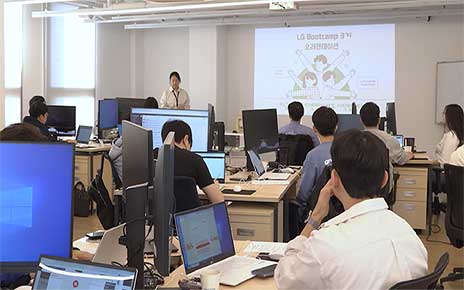We use cookies, including cookies from third parties, to enhance your user experience and the effectiveness of our marketing activities. These cookies are performance, analytics and advertising cookies, please see our Privacy and Cookie policy for further information. If you agree to all of our cookies select “Accept all” or select “Cookie Settings” to see which cookies we use and choose which ones you would like to accept.
[Mobility Inside] Protecting Your Data, Keeping You Safe: Why Cybersecurity Matters
-
extension : zipmobility-inside-protecting-your-data-keeping-you-safe-why-cybersecurity-matters.zip
-
extension : imgCyber-Security-01-1440.jpg
-
extension : imgCyber-Security-02-1440.jpg
-
extension : imgCyber-Security-03-1440.jpg
-
extension : imgCyber-Security-04-1440.jpg
-
extension : imgCyber-Security-05-1440.jpg
![[Mobility Inside] Protecting Your Data, Keeping You Safe: Why Cybersecurity Matters](/content/dam/channel/wcms/global/newsroom/lg-story/beyond-news/mobility-inside-protecting-your-data-keeping-you-safe-why-cybersecurity-matters/Cyber-Security-01-1440-n.jpg)
The next generation of vehicles will offer more than just a means of transportation. Part lifestyle space and part smart device, cars in the near future will incorporate a raft of innovative technologies, ranging from autonomous driving systems, big data and artificial intelligence (AI) to cloud computing and wireless network solutions.
Moving forward, the ‘software-defined vehicle’ (SDV) will become the norm, with computer operating systems overseeing all aspects of passenger entertainment, comfort and safety. With the shift from hardware to software comes the increased importance of vehicle cybersecurity, a matter that global automakers and innovative component makers like LG are taking very seriously.
![[Mobility Inside] Protecting Your Data, Keeping You Safe: Why Cybersecurity Matters](/content/dam/channel/wcms/global/newsroom/lg-story/beyond-news/mobility-inside-protecting-your-data-keeping-you-safe-why-cybersecurity-matters/Cyber-Security-02-1440-n.jpg)
Smart Driving and Automotive Software
In-vehicle infotainment (IVI) systems provide a wealth of entertainment and information to make traveling by car safer and more enjoyable. Soon, they will take their capabilities a step further, gaining the ability to suggest optimal driving routes through the use of AI, communicate with other cars and traffic systems via vehicle to everything (V2X) tech and autonomously manage their own software platforms to keep everything up to date. In addition, future ‘on-road’ software solutions will be able to monitor electric vehicle (EV) battery status, analyze the driving habits of the person behind the wheel and check on important safety considerations, such as the driving environment and road conditions.
![[Mobility Inside] Protecting Your Data, Keeping You Safe: Why Cybersecurity Matters](/content/dam/channel/wcms/global/newsroom/lg-story/beyond-news/mobility-inside-protecting-your-data-keeping-you-safe-why-cybersecurity-matters/Cyber-Security-03-1440-n.jpg)
The Growing Importance of Vehicle Cybersecurity
As the use of software for vehicles continues to grow, so too does the necessity to put in place systems that prevent unauthorized access, or hacking. Failing to do so runs the risk of exposing the vehicle itself, and any personal information linked to the vehicle, to cybersecurity threats. Over-the-air (OTA) functionality, whereby car software is remotely updated over wireless internet or cloud network, is just one area that could be susceptible to a potential attack.
To protect against the likelihood of vehicle hacking, the United Nations Economic Commission for Europe (UNECE) has established international standards for automotive cybersecurity: regulation No. 155 (UN R155) and No. 156 (UN R156). According to these regulations, automakers and component suppliers must ensure that their vehicles and solutions include an effective cybersecurity management system (CSMS) and security functions for firmware updates over wireless connection. Both vehicle manufacturers and parts suppliers are invested in keeping everyone on the road safe and are actively complying with the latest rules and standards relating to cybersecurity.
![[Mobility Inside] Protecting Your Data, Keeping You Safe: Why Cybersecurity Matters](/content/dam/channel/wcms/global/newsroom/lg-story/beyond-news/mobility-inside-protecting-your-data-keeping-you-safe-why-cybersecurity-matters/Cyber-Security-04-1440-n.jpg)
Cyber Digital Twins Platform (Photo credit: Cybellum YouTube)
LG Leads the Way in Automotive Software Security
LG, a major provider of advanced auto components, is making continuous efforts to enhance the cybersecurity of its innovative vehicle solutions. In 2021, LG acquired Cybellum, an Israeli software firm with expertise in investigating automotive cybersecurity vulnerabilities, to upgrade the security of its offerings. The following year, LG signed a memorandum of understanding (MOU) with Korean companies, LG U+ and CryptoLab, for a technical collaboration in the field of post-quantum cryptography (PQC). These cutting-edge technologies are set to be employed in various areas requiring rigorous cybersecurity, such as in-vehicle payment, V2X and OTA services.
![[Mobility Inside] Protecting Your Data, Keeping You Safe: Why Cybersecurity Matters](/content/dam/channel/wcms/global/newsroom/lg-story/beyond-news/mobility-inside-protecting-your-data-keeping-you-safe-why-cybersecurity-matters/Cyber-Security-05-1440-n.jpg)
Additionally, LG has received international certifications for complying with industry standards on vehicle cybersecurity. LG recently earned CSMS verification (tested by TÜV Rheinland), which indicates that the company properly applies all relevant security measures throughout the entire parts creation process – from design and development to production and post-installation management – and conducts thorough simulations to test its solutions’ susceptibility to hacking. The level of commitment LG has shown to cybersecurity is one of the many reasons why the company has become a trusted supplier of IVI systems and telematics components.
Thanks to LG’s relentless drive to ensure the security and reliability of its vehicle components, drivers and passengers alike can look forward to safer and more convenient future mobility experiences.


